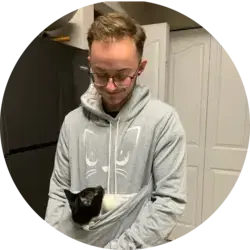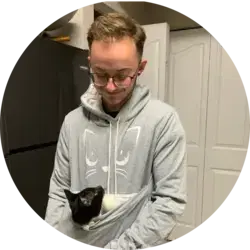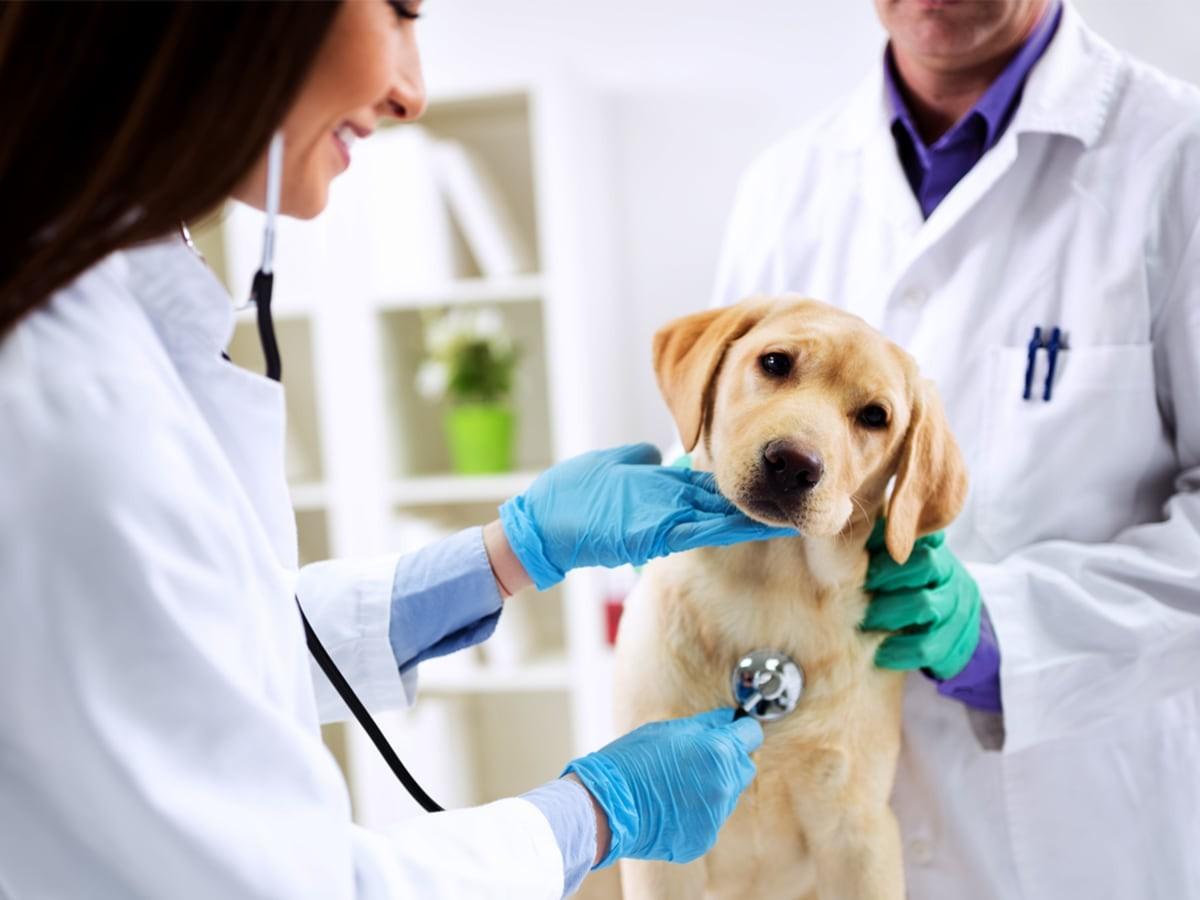No matter how much we read and research about proper pet parenting, there will always be things about our pet’s health we simply don’t have the answers to. Your pet’s veterinarian will likely be the best source of information specifically catered to your pup.
Sometimes pet parents don’t know which types of questions to ask a veterinarian. Should you be asking about your dog’s licking habit? What about that freckle on their hind leg? Your vet will be able to tell you what you should be concerned about and what is considered normal or healthy.
There are quite a few things pet parents wish veterinarians would tell them at their vet visits. Veterinarians need to remember to share their knowledge with pet parents – no matter how obvious they might think it is, there’s no such thing as oversharing when it comes to our furry companions and their health.
5 Questions to Ask a Vet
Before getting into the details about what vets should share with pet parents, let’s start with some questions that are great starting points for gathering information on your pet’s general health.
Is my pet at a healthy weight?
This is a great question to ask a veterinarian because your pet’s weight can directly impact their health. Overweight pets may be more susceptible to cardiovascular problems and joint pain or immobility.
This is especially true with brachycephalic breeds of dogs (like Pugs, for example) who have shortened snouts that make them more prone to breathing issues. Breathing problems plus being overweight is likely to cause even more breathing problems and less desire to exercise; continuing the unhealthy cycle.
Underweight pets also pose a significant health problem, especially if your pet is still growing and developing. Be sure to ask your vet how your pet’s weight is trending and what they think the best course of action is for your furry family member.
Am I feeding my pet the right type of food?
Is your pet getting the right amount of nutrients? Which ingredients should you be looking for in your pet food? With the plethora of pet food brands out there to choose from, your veterinarian will be the best expert on guiding you toward the right choices for your pet’s diet.
Your pet needs more than 30 essential nutrients for a healthy diet, which is why many veterinarians advise against making your own pet food from scratch. In general, your pet needs an adequate amount of:
Protein
Amino acids
Fatty acids
Vitamins
Minerals
A diet that fulfills all five categories is considered complete and balanced by the AAFCO. You should look for the USDA’s certified organic and human-grade seals on pet food products as much as possible. The terms organic and human-grade are the only regulated terms on packaged pet foods.
Do my pet’s teeth look healthy?
How does your pet’s oral health look? Your pet’s mouth isn’t just for chewing toys or cleaning themselves – it can tell a lot about their health. If you notice your pet’s gums look discolored (anything other than pink, think: bright red, dark red, black, or even white) then there is a good chance they need a check-up.
Not every pet parent has tons of time to check their pet’s teeth and gums every so often; it’s best to get your vet’s opinion on the matter. If you’re able to brush your pet’s teeth, awesome! If not, it’s a good idea to leave it to the experts.
Your vet will be able to deduce any kind of inflammation, gum disease, and any possible treatment that your furry friend might need (i.e., tooth extractions) and go over all pet dental care costs.
When are my pet’s next vaccinations?
Staying up to date on your pet’s regular vaccinations is vital to their health and your wallet. Missing a recommended vaccination (usually split between “core” and “non-core” vaccines) will make your pet susceptible to illness, which may result in an unexpected and expensive emergency room visit.
Common core vaccines for dogs:
Rabies
Distemper
Parvovirus
Adenovirus
Common core vaccines for cats:
Feline Distemper
Feline Herpesvirus
Calicivirus
If you’re ever wondering what to ask the vet, asking about your pet’s vaccinations is a great one to keep your pet’s health on track.
Is my pet’s behavior normal?
This is a common question vets are asked. It’s always a good idea to ask the vet and overshare about your pet’s behavior rather than undershare. Your vet will be able to clarify what pet behaviors are concerning and normal.
It’s important to tell your vet of any obedience training your pet has had because training your pet to be obedient might mask an underlying behavioral issue that might need treatment.
What Your Vet Wants You to Know
Vets are extremely busy and want to be able to give your pet their undivided attention when they’re in their care. There are a few things vets would like to share with you that may help you determine if you should pick up the phone and make a vet appointment or not.
Schedule a visit if your pet isn’t eating or drinking
Our pets have limited ways of communicating with us, but not eating and drinking is a big one. If you notice your companion isn’t eating or drinking, it’s time to call the vet.
Try to watch your pet when they go to the bathroom to see if they are straining to relieve themself if they are able to go at all. Sometimes if your pet isn’t eating or drinking they might be having a hard time relieving themselves, too.
Vet Advice: This is a sign to call your vet immediately. No pet should go 24 hours without eating or drinking water. This could be due to medication, illness, or worse. In these scenarios, it’s best to get your furry loved one to the vet as soon as symptoms are noticed.
Your pet is really good at hiding pain
One of the most miraculous qualities of pets is their ability to hide their pain. Unless a severe bone break, most pets don’t yelp or cry in pain. Most pets will wince if poked or prodded in a tender spot, but most will separate themselves away from their humans to be alone.
If you notice your pet is acting differently, especially if they’re older, it’s time to call the vet. You’re going to want to watch for signs of lethargy, sleeping more than normal, getting up often/not laying down, and “tiptoeing” or movement that looks like they’re walking on eggshells. These are all signs of pain and you should call the vet as soon as possible.
Vet Advice: Pets like to show their parents that they are strong, and they don’t like to disappoint. If you notice your fur baby becoming distant, moving slower, or generally more lethargic, definitely call your vet.
Prevent disease and extend life with a good diet
A lot of vet questions revolve around food and diet, and with good reason, too. Your pet’s weight directly impacts their health, so it’s important to discuss this with your vet. Managing your pet’s weight is the best way to prevent future disease and extend their long, healthy life!
Along with diet, many pet parents want to call the vet immediately after their pet has a loose or too hard bowel movement. In this case, wait a day or two to see if it passes. Your pet may have had a treat or ate something outside their regular diet that contributed to their irregularity.
If you’re cooking your pet their own fresh pet food, you might actually notice an increase in unusual bathroom behavior. Many vets advise against homemade pet food because there is a high chance your pet won’t be getting all the necessary nutrients for optimum health.
Vet Advice: Discuss a weight management plan with your veterinarian if you’re concerned your pet is over or underweight.
What Vets and Pet Parents Agree On
Whether it’s your first time visiting the vet or your thousandth, it’s always a good idea to write down your vet’s recommendations.
Depending on your pet’s needs and your financial situation, your vet may ask you to consider investing in pet insurance. Depending on your policy, you can add accident and illness coverage if you have a more accident-prone pet, but it can also help cover the cost of vaccines and general wellness visits.

As Spot’s resident cat enthusiast, I am dedicated to researching and sharing information that helps pet owners take the best care of their pets. Pet ownership comes with it’s share of challenges, but my goal is to help make this journey easier.












